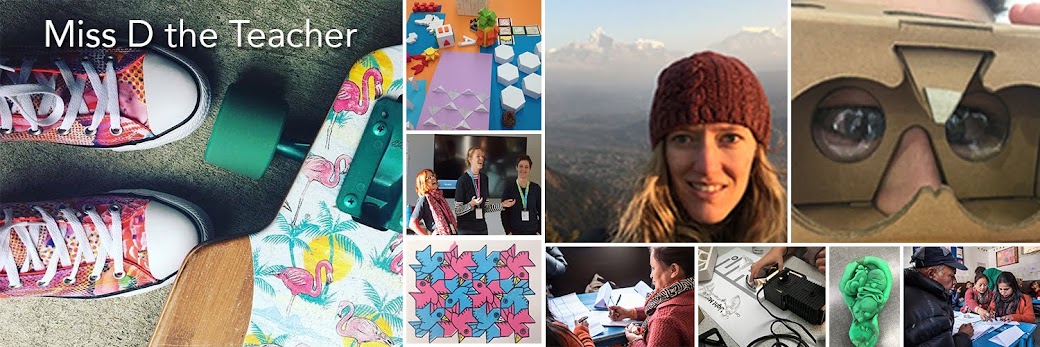 |
| Image source: www.unrestrictedstock.com |
Did you know, to become a New Zealand citizen if you have not been born here, you are required to swear an oath or complete an affirmation of allegiance?
I (your name) solemnly and sincerely affirm that ... ... ... I will faithfully observe the laws of New Zealand and fulfil my duties as a New Zealand citizen - www.dia.govt.nz
In England, there is a GCSE called Citizenship Studies which "helps students to develop as active citizens of our democracy."
What is citizenship? What does it mean to be a New Zealand citizen as opposed to a citizen of another country? What is a good citizen? How do you teach someone to become a good citizen? And should there be a distinction between citizenship and digital citizenship?
Being a bit of an E-Learning nerd, I spend a significant amount of time thinking about Digital Citizenship. However, working with +Andrew Cowie from the National Library on this subjects recently, I have realised a few more important things...
Firstly, that although we keep saying digital citizenship, it is really an indication of our age far more than grey hair and wrinkles could ever be. Do you have an email account? Then guess what? You are a digital citizen. Although to a lesser degree than a fourteen year old who documents their whole life through Instagram snap shots or a twenty something year old teacher who blogs about everything she learns at her new school, you are still a digital citizen. Then throw in some online banking, shopping, your iTunes account and your Facebook account. Perhaps you are occupying more of cyber space than you care to think? In fact, how many of us can really function in society without connectivity? +Andrew Cowie proposed that the "digital" might fall away eventually. I agree, but I think that it should already have fallen away. Breaking a law online, is still, breaking a law, hence, you are citizen occupying a physical and a digital space.
As always, admitting the problem is always the first step. So now that I am aware that I am a (digital) citizen, what should I know? Certainly the traditional ideas of cyber safety are my, and probably your immediate thoughts. Don't give out personal details and so forth. However there is more to it than that. I am directly connected to the world. I have a digital persona that may reflect positively or negatively depending on how what I put out there is interpreted. And that digital version of me has a reach often much further than what I would have had on my own. What is the impact of my words online? They may not break any laws, but certainly they may impact someone's perception of me. Or they may impact someone's perception of the organisation that I work with. And certainly, if you work in New Zealand, chances are, you will meet someone in person at some point.
Although we often focus on the cyber safety and sensibility side of things. We often forget about things such as intellectual property. Do you have the permission to use certain images? When I retweet an image, do I actually have the right to do so? Have you read the fine print of who owns the images you upload to Pinterest, Facebook, Google, Twitter and Instagram? Do you know what a creative commons licence is?
Being a good digital citizen extends beyond not breaking the law, just as being a good citizen extends beyond not breaking the law. For example I might not break any laws, but I would be considered a much better citizen if I enrolled to vote and actually bothered to vote. Or if politics isn't your thing, I might choose to get involved in my community through girl scouts or other community projects. In the digital world, this may be as simple as clicking the report spam button in Twitter. It may mean that I host events such as #kidschatNZ or that I use the internet to spread the world about a good cause like +Johanna Chambers and her ride for cancer.
There is also genuine skill that comes into being a good digital citizen. Information is no longer a commodity but being able to sift through information and curate it in a thoughtful, useful and unique way is far more valuable. Or learning to manage online representations of ourselves is certainly also a skill with genuine value.
Citizenship is about obeying the laws of a country. However being a good citizen is about contributing in such a way that your country benefits from you, and as a result, you from it. Being a citizen you would keep yourself safe and follow the law, but a good citizen contributes. So, ask not what the internet can do for you, but what you can do for the internet. Are you contributing by keeping not just yourself, but others safe too? Are you using the connectivity and reach of the internet to achieve positive things both in a physical and a digital space? And are you really engaging with the potential of the internet? Are you the citizen who never enjoys the beaches, the parks, the public fireworks? Or are you the citizen who embraces the full power of the the Internet's enormous diversity and makes it work for you and those around you in both the physical and the digital worlds you occupy?
I encourage you to embrace that you are probably like me, a child of two worlds. You live in a physical and a digital space. So I invite you to step up, and live in that space as you would in your home, your neighbourhood and your community. Make it a better place!



